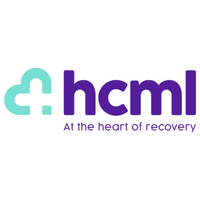Why employers should look beyond insurance to revolutionise employee wellbeing
The workplace is rapidly evolving and employers are increasingly recognising the importance of comprehensive health and wellbeing initiatives that go beyond traditional insurance cover.
As sickness absence rates rise to their highest levels for over a decade, according to the CIPD Health and wellbeing at work 2023 report, and pressures on the NHS make accessing timely treatment challenging, companies are exploring innovative solutions.
While group risk and insurance are no doubt important provisions, the nature of health and wellbeing is complex, and a holistic solution is needed to address the diverse health challenges faced by today’s workforce.
Wellbeing benefits can prevent ill health
While insurance is a logical solution in some circumstances, a closer look at the root causes of absence reveals that wellbeing services focusing on prevention could be the game-changer companies need.
According to the CIPD research, minor illnesses such as coughs, colds and digestive issues, and musculoskeletal and mental health issues were the top reasons for short-term absence from work in 2023. Addressing underlying causes and contributory risk factors of these types of health concerns can significantly improve employee health and reduce absence.
In this sense it’s important to consider the wider impacts on health, including physical factors such as age and gender as well as lifestyle, e.g. nutrition, exercise, sleep; psychological e.g. personal stressors, attitudes and beliefs, anxiety and depression; and social e.g. occupational, social and cultural influences.
For one HCML client, a shift from clinical interventions combined with wellbeing benefits led to employees who accessed services for musculoskeletal (MSK) health reporting no absence within the following 12 months.
Encouraging employees to look after their own health is key to this approach.
Case study: prevention – using clinical and wellbeing solutions
An employee experiencing lower back and arm pain combined with anxiety and depression was referred for an MSK assessment. Rather than a traditional approach, the practitioner assessed the employee combining physical, social and psychological factors. This highlighted underlying causes and risk factors including personal stressors, lack of sleep and exercise, smoking and specific attitudes, beliefs and fears.
A holistic wellbeing plan included exercises for the pain and a bi-weekly call to address physical and psychological symptoms. Adjustments were made to diet due to high-risk Type 2 diabetes and exercises were recommended to address mood, physical strength and flexibility and cardiac health.
The wellbeing initiatives resulted in the employee exercising regularly, improving their nutrition, getting more sleep and giving up smoking. This all contributed to the individual’s reduced anxiety and improved mood, a two stone weight loss and resolving the back and arm pain. If this had not been addressed through wider health related benefits, there would have been a risk of ill health and absence in the future.
Adopting preventative health-related measures as well as insurances provides the opportunity for employers to reduce future claims.
Realising the benefits
Incorporating health-related benefits such as nutrition, exercise and sleep support can help make health provision more equitable across the workforce. Many companies offer a percentage of their workforce a private medical insurance (PMI) option, but this is generally for those in senior positions.
Forward-thinking employers that are expanding their focus to encompass a broader spectrum of clinical and non-clinical health-related benefits are seeing the tangible benefits of offering them to the whole workforce.
Taking this approach saved the client £2.5m in senior management healthcare plan costs in the first two years and this was extended to all employees, with a shift away from clinical interventions to a focus on wellbeing benefits.
Reevaluate your approach
To ensure greater equity in health benefits across the workforce, companies must reevaluate their approach to providing insurance options. Currently, a common practice involves offering these benefits primarily to senior positions, leaving a significant part of the workforce without access to crucial health cover.
To foster a more inclusive and equitable system, employers should consider expanding the eligibility criteria to encompass a broader spectrum of employees. Implementing a tiered system that extends health benefits based on workforce data, where employers can ‘bolt on’ solutions based on the real-time data of their employees, can help bridge the gap.
By understanding the broader impacts on health – physical, psychological and social – employers can tailor benefits to address the specific needs of their workforce.
Supplied by REBA Associate Member, HCML
HCML is a health and wellbeing provider, offering integrated and personalised healthcare solutions.








